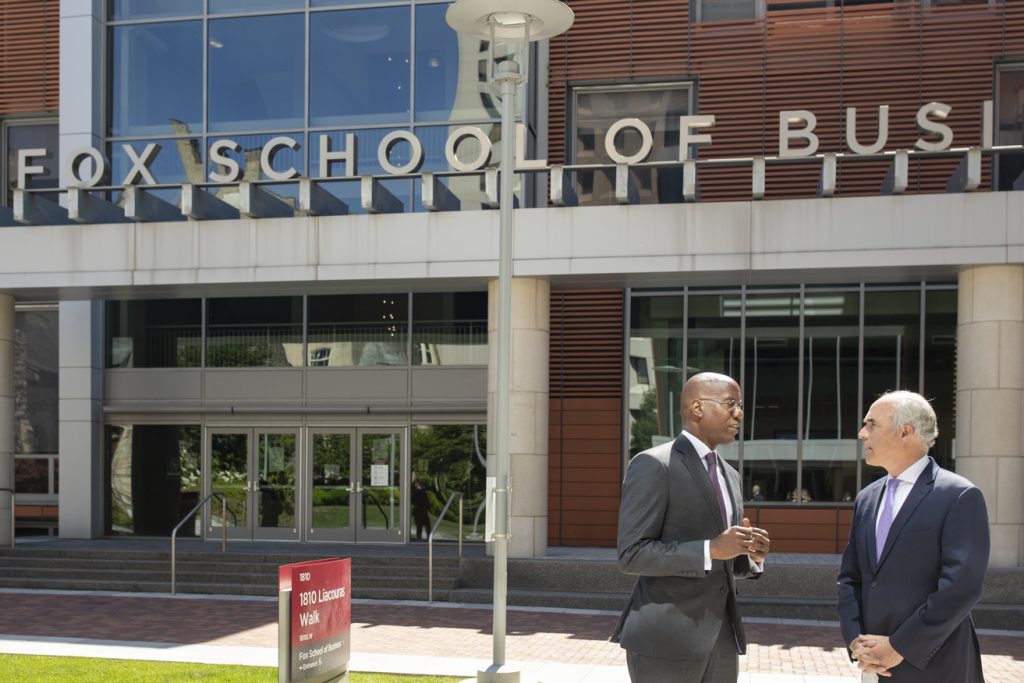This opinion is not new—young workers and prospective employees place less value on a college degree than in previous decades. With vocal innovators such as Elon Musk arguing against the realistic need for a college degree in the world of modern-day technology, there has been more buy-in from younger generations in this sentiment.
In my latest book “The College Devaluation Crisis: Market Disruption, Diminishing ROI, and an Alternative Future of Learning,” I address this problem loud and clear. Institutions of higher education, including Temple University, must make radical changes over the next few years, or face the harsh reality of becoming outdated.
The evolution of education can be broken down into four phases: Agrarian (1600-1849), Industrial (1850–1974), Knowledge (1975–2009) and Post Recession (2010–current). Now, we all must work to shape the future of education.
Prior to being named Temple University’s president in July 2021, I was a dean at Columbia University. During that time, I oversaw not just a graduate school featuring 16 masters of science degrees, but also Columbia University’s programs for high school students. In the summer of 2017, I noticed a dramatic shift in the number of top employers recruiting directly from the pool of high school students in the summer program—and away from the pool of students in the undergraduate and graduate programs.
I wanted to find out why this was happening, so I spoke with employers directly. They had concluded placement and performance data at their respective companies showed declining levels of job readiness and hiring satisfaction from college and graduate school hires. As a result, the hiring companies had to invest resources to train their newly minted college graduates in the skills needed to do the work. Rather than continue down this path, they decided to hire younger, cheaper workers with the goal of increasing retention rates among these employees.
In the following years, I conducted interviews and focus groups of Columbia graduates and Fortune 500 employers. As the key takeaway gathered from my research: The value of the college degree has reached its peak and is on the wane, thanks to a host of factors stretching from cost and affordability to curriculum relevance to rapidly evolving skill needs to advances in automation and technology.
So, what can we do to solve this issue? Adapt.
Institutions need to update curricula at least every year. It is not enough to have courses on modern technology. Evolving the curriculum on a regular basis will ensure our students keep up with trends actively being used in the market they are entering.
Next, we must provide graduating students with versatile skill sets needed for the workforce. Having the ability to adapt to any situation will make new graduates irreplaceable assets in their fields while instilling skills they can use for the remainder of their careers.
Finally, the promotion of discourse and the scholarly exchange of ideas should be prioritized. Innovation is founded on the mutual sharing of new ideas. If we teach students how to complete tasks and do not give them the tools to drive their own ideas and innovate, we have potentially failed to develop a graduate’s potential fully.
In its current form, institutions of higher education are not adapting in ways needed to survive. There are alternative learning experiences being built in the form of free and inexpensive certification courses and open-access learning opportunities. The good news—this reality presents an opportunity to realize value.
In short, there are three steps we must achieve to productively shape the future of education. (1) Disrupt the traditional learning model. (2) Develop alternative learning models that are responsive to new skills gaps that emerge in today’s global marketplace, thus affecting productivity and competitiveness. (3) Demonstrate where change is needed and evaluate and amplify the change as it happens.
Higher education is going to drastically change and evolve throughout the next decade. As the president of Pennsylvania’s second-largest institution of higher education, I know the responsibility that sits on my shoulders. I also know the entire Temple University community is prepared and motivated to catapult this center of excellence into the next era of education.
